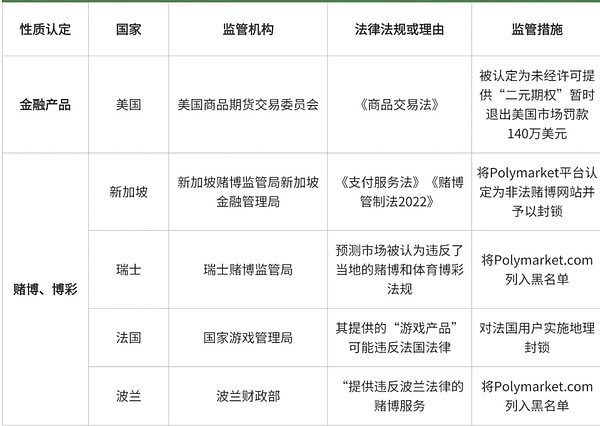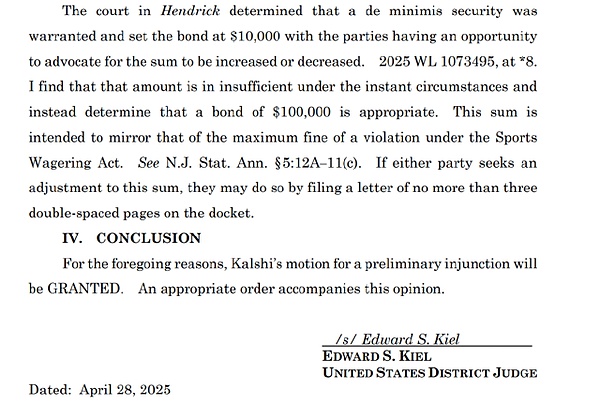Author: Gui Ruofei Lucius

“The Polymarket story reveals a compliance approach driven by capital. In the early stages of the platform's operations, the project team prioritized expanding and strengthening the project, gaining economies of scale and first-mover advantage. Later, leveraging the advantages accumulated in the early stages of the project, the project team raised funds and leveraged capital through acquisitions and other means to proactively implement compliance reforms, thereby legitimizing the business and further expanding. This is not only a compliance strategy, but also a business strategy.”
02 A Brief Analysis of Polymarket’s Global Regulatory Dilemma

2.1 United States: Deemed as a binary option, and ultimately reached a settlement with the CFTC

2.2 Europe: Deemed as gambling and blacklisted
However, Polymarket's compliance challenges are not limited to the United States. In other jurisdictions around the world, Polymarket also faces severe regulatory pressure. In the European Union, the implementation of the Markets in Crypto-Assets Act (MiCA Act) established a unified regulatory framework for crypto-asset service providers (CASPs), covering asset-referenced tokens (ARTs), electronic money tokens (EMTs), and other crypto-assets not covered by existing financial services legislation. However, MiCA Act does not explicitly include prediction markets within its scope, leaving room for independent regulation within each country based on its gambling laws. Therefore, even though MiCA Act provides a unified authorization framework for crypto-asset services in the EU, prediction market platforms still face fragmented regulation across European countries. In Europe, regulators in several countries took regulatory action against Polymarket between November 2024 and January 2025. The Swiss Gambling Supervisory Authority blacklisted Polymarket.com on November 26, 2024, citing violations of local gambling and sports betting regulations for its prediction markets. France's National Gaming Authority announced on November 29, 2024, that following an investigation, Polymarket had agreed to geo-block French users because the "gaming products" it offered may have violated French law. This action by French regulators was reportedly driven in part by regulatory concerns raised by the aforementioned French trader who placed significant US election bets on the Polymarket platform. Shortly thereafter, on January 8, 2025, the Polish Ministry of Finance blocked access to Polymarket.com for residents, accusing it of "providing gambling services that violate Polish law." This demonstrates that European countries generally adopt a conservative and cautious regulatory stance toward prediction markets, such as Polymarket. Most regulatory agencies consider prediction markets gambling activities and strictly regulate and restrict them in accordance with their respective gambling laws.
2.3 Singapore: Violation of Two Acts
Singapore’s regulatory framework for prediction markets combines
the Payment Services Act and the Gambling Control Act 2022
the Payment Services Act and the Gambling Control Act 2022
the Payment Services Act and the Gambling Control Act 2022
 Joy
Joy







